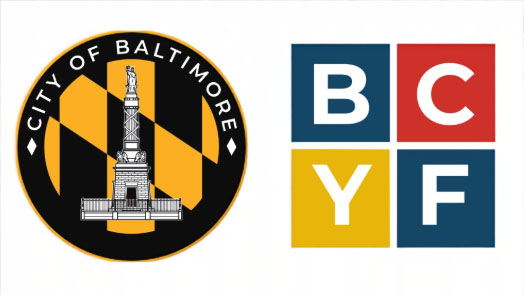The Baltimore Children and Youth Fund (BCYF) is under scrutiny for transferring $7 million of taxpayer money to the Mayor’s Office of Employment Development (MOED) without clear documentation. This transfer has raised significant questions about accountability and transparency in the management of public funds. The funds originated from a larger allocation of $16 million sent to BCYF in the current Baltimore City budget.
Despite numerous inquiries from Spotlight on Maryland, BCYF has not provided clarity on how the funds were transferred or the decision-making process behind it. The organization claims it has no documentation regarding this transaction, which further complicates the issue. This situation exemplifies the ongoing challenge of tracking taxpayer dollars once they leave City Hall, particularly concerning their return to the municipal government.
On April 15, 2024, a meeting of the BCYF board included a presentation by J.D. Merrill, a representative from Mayor Brandon Scott‘s office. One week later, the board unanimously approved its grants for 2025, including the controversial transfer to MOED. Merrill was recently appointed as the mayor’s chief of staff.
Spotlight on Maryland posed several questions to BCYF President Alysia Lee, BCYF Board Chair Larry Simmons Jr., and Mayor Scott’s office regarding the specifics of the board’s approval and the intended use of the funds. No responses were received.
The transfer has not only raised concerns among BCYF’s board but has also sparked criticism from members of the Baltimore City Council, including Council President Zeke Cohen and Councilman Mark Conway. Both officials cited the transfer as a key reason for their opposition to the current budget. Recently, Cohen and Conway, along with five other council members, co-sponsored a bill aimed at establishing stricter regulations and oversight for BCYF, which would limit how the organization can send money back into the Baltimore City government.
Former president of the T. Rowe Price Foundation and co-chair of the BCYF task force, John Brothers, expressed disapproval of the funding strategy. He stated that the transfer to MOED contradicts the original purpose of BCYF, which was established to support grassroots community initiatives. Brothers emphasized that the focus should be on raising private funds for programs like YouthWorks, rather than relying predominantly on public funding.
In a recent statement, Lee referred to the $7 million transfer as a “one-time investment” and indicated that BCYF does not plan to send further funds to the mayor’s office. “I was at the board meeting when they decided to prioritize the children, and that was the main focus: what do young people need?” Lee stated. She acknowledged the board’s awareness that their decision might attract negative media attention.
According to the Mayor’s office, the BCYF funds were allocated as follows: $4.9 million for YouthWorks, which provides paid summer jobs for teens; $1 million for the mayor’s summer youth engagement strategy; and $2.1 million for the Summer Funding Collaborative grant program.
Public information requests submitted by Spotlight on Maryland for documentation concerning the BCYF money sent to MOED have been met with claims of no available records. Additionally, a request sent to the mayor’s office in August remains unanswered.
The current Baltimore City budget has cut BCYF’s grant-making budget by $6 million as a result of reallocating $7 million to MOED. Brothers criticized the budget structure this year, highlighting that BCYF was intended to support community-based organizations, not city-funded initiatives.
Concerns about governance are also apparent, as half of BCYF’s board members have ties to Mayor Scott, either through previous employment or current appointments. BCYF had previously acknowledged a mistake in listing a board member, Lisa Molock, as having voted on the 2025 grantees, which included a grant to her own organization. When asked for an updated list of voting board members, BCYF did not provide a response.
The Baltimore City Inspector General has launched an investigation into BCYF, further intensifying scrutiny over the organization. As the situation unfolds, the need for transparency and accountability in the management of public funds remains crucial for the trust of Baltimore’s citizens.





































































